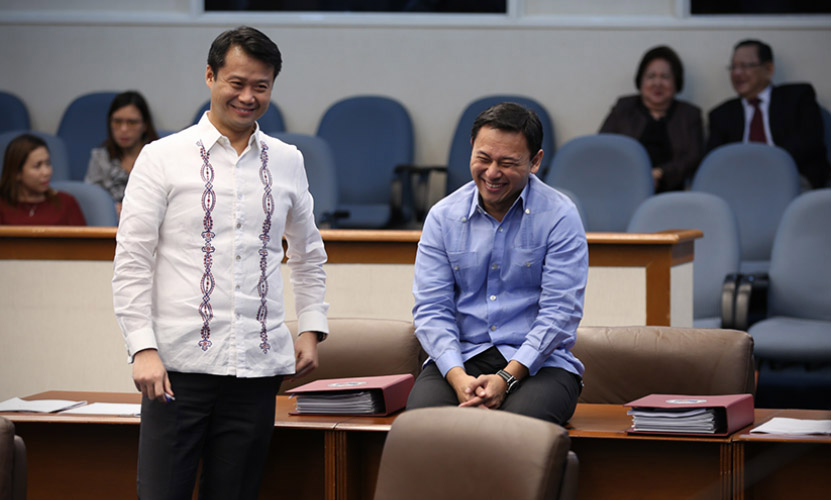
Senator Win Gatchalian is advocating the expansion of the personal income tax exemption provided in the Senate version of the proposed Tax Reform for Acceleration and Inclusion (TRAIN) Act as a means of decreasing the burden to be imposed on near poor households by the new tax regime.
Gatchalian, who serves as Chairman of the Senate Committee on Economic Affairs, said he would formally propose an amendment to raise the threshold for income tax exemption to P200,000 per individual taxpayer annually, a 33-percent increase from the P150,000 cap provided by the bill in its current form.
“In the proper time, I would like to propose an increase…to protect the near poor because they are one of the most vulnerable sectors of our population. They can go into poverty even with the slightest shock,” Gatchalian said as he interpellated Senator Sonny Angara, the Chairman of the Senate Ways and Means Committee and principal sponsor of the TRAIN Bill.
Gatchalian said increasing the cap to P200,000 would benefit more low income earners, pointing out that a portion of their wages would still be taxed by the government.
He cited as an example the projected 2018 annual basic income (P189,120) of a near poor family (5th income decile) supported by a single worker earning only marginally more than the minimum wage. Angara admitted that under the current P150,000 exemption cap in the Senate TRAIN Bill, the individual would still have to pay approximately P2,000 in income taxes after deductions. However, this family would also be eligible to receive conditional cash transfer allowances totaling P3,600 per year as part of the government’s drive to mitigate the inflationary effects of the tax reform measure on poor and near poor households.
Gatchalian said it would be illogical for the government to give cash transfers to near poor households, only to decrease their take home pay at the same time by imposing income taxes.
“Nagbibigay tayo ng cash relief pero binubuwisan din naman natin. That’s what I’m driving at,” he said to emphasize the need to adjust the exemption threshold.
Gatchalian also proposed an amendment to scrap the two-year volume-based scheme in favor of a content-based approach to the sugar sweetened beverage (SSB) tax, explaining that the latter is a more equitable approach to increasing projected government revenues while maximizing the public health benefits of the proposal at the same time.


